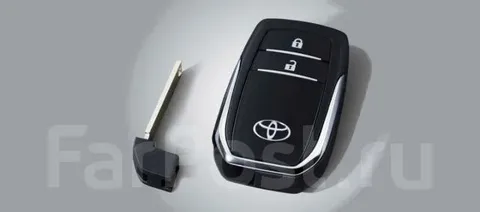Connected Mobility and the Rise of Intelligent Smart Keys

Introduction
The Automotive Smart Key Market is expanding rapidly as modern vehicles increasingly adopt advanced keyless entry and ignition systems that enhance security, convenience, and user experience. Smart keys use wireless communication technologies—such as RFID, Bluetooth, or NFC—to enable remote locking/unlocking, push-button start, and personalized vehicle settings without the need for physical key insertion. With rising consumer preference for premium features, enhanced vehicle security, and seamless digital interaction, smart key systems have become standard in mid-range to high-end vehicles. The market is projected to grow at a CAGR of around 8–9% over the forecast period, supported by advancements in connectivity, smartphone integration, and the shift toward intelligent mobility solutions. As the automotive industry transitions toward connected, autonomous, and electric vehicles, smart keys are evolving into digital access platforms that integrate with mobile devices, biometrics, and cloud-based authentication.
Market Drivers
Increasing consumer demand for convenience, comfort, and advanced in-vehicle technology is a primary driver for the automotive smart key market. Rising vehicle theft rates and the need for enhanced security systems are encouraging adoption of encrypted smart key solutions with rolling codes, multi-factor authentication, and immobilizers. Growing adoption of connected vehicles and telematics systems supports integration of smart keys with smartphones and cloud services, enabling remote vehicle access and monitoring. Electrification and premiumization trends in vehicles are pushing OEMs to standardize smart key systems across higher trim levels. Increasing production of mid-range and luxury vehicles, along with growing preference for push-button start systems, significantly contributes to market expansion. Additionally, emerging technologies such as biometric access, digital key sharing, and vehicle-to-device connectivity are reshaping consumer expectations for vehicle access.
Market Challenges
High costs associated with advanced smart key systems limit penetration in budget and entry-level vehicle segments. Cybersecurity vulnerabilities—such as relay attacks, signal jamming, or hacking—pose significant risks to smart key-based access systems. Integration of smart key architecture with vehicle electronics and IoT infrastructure increases design complexity and development costs. Replacement and repair of smart keys are expensive, affecting aftermarket adoption. Regulatory variations across regions regarding digital access and data privacy may limit seamless cross-platform integration. Limited awareness and cost sensitivity in developing markets slow adoption. Additionally, interoperability challenges between different OEM smart key platforms can restrict universal digital key usage across multiple vehicle brands.
Market Opportunities
The evolution of digital and smartphone-based car keys presents strong growth opportunities for OEMs and tech providers. Development of cloud-enabled keys with real-time authentication, remote access, and vehicle-sharing features aligns with the rise of car-sharing and subscription-based mobility services. Biometric-based smart keys using fingerprint, facial recognition, or voice ID offer enhanced security and personalization potential. Integration of smart keys with IoT, smart homes, and wearable devices expands the ecosystem of connected lifestyle services. Growing adoption of electric and autonomous vehicles will require more advanced access systems with multi-user control and predictive security. Aftermarket upgrades for converting traditional key systems into smart key-enabled access offer a new revenue stream. Partnerships between OEMs, fintech companies, and cybersecurity firms will accelerate development of secure digital key standards.
Regional Insights
Asia-Pacific dominates the Automotive Smart Key Market due to rising vehicle production, growing demand for premium features, and rapid adoption of digital technologies across China, Japan, South Korea, and India. China leads with strong EV penetration and tech-driven vehicle innovations. Europe holds a significant market share driven by high adoption of luxury vehicles, strict security standards, and advancements in connected mobility. Germany, France, and the UK are key contributors. North America shows strong growth supported by the popularity of SUVs and premium vehicles, as well as expanding connected car infrastructure in the U.S. Latin America, the Middle East, and Africa are gradually adopting smart key systems as purchasing power increases and security awareness rises.
Future Outlook
The future of the Automotive Smart Key Market will be shaped by digitalization, cybersecurity, and mobility-as-a-service trends. Digital keys stored in smartphones or wearables will become widely adopted, enabling keyless operation without physical fobs. Biometric and blockchain-based authentication will enhance security and prevent unauthorized access. Cloud-connected keys enabling remote diagnostics, user-based access permissions, and shared mobility will redefine access management. Integration with smart mobility ecosystems will allow users to access vehicles, homes, and mobility services through unified authentication platforms. As autonomous and connected vehicles evolve, smart keys will become part of intelligent user identity systems, enabling personalized in-car settings, entertainment, and payment access. Sustainability will also influence design, with reduced hardware dependency shifting toward software-based keys.
Conclusion
The Automotive Smart Key Market is evolving rapidly as the industry adopts advanced keyless access and digital authentication systems to enhance security, convenience, and user experience. Smart keys are transitioning from simple keyless entry devices to intelligent, personalized access platforms integrated with smartphones, biometrics, and cloud services. Although cybersecurity risks, cost constraints, and integration complexities present challenges, ongoing innovation and increasing adoption across vehicle segments are driving strong market growth. As mobility becomes more connected and user-centric, smart keys will continue to play an essential role in shaping next-generation vehicle access and security solutions.
- Art
- Causes
- Crafts
- Dance
- Drinks
- Film
- Fitness
- Food
- Games
- Gardening
- Health
- Home
- Literature
- Music
- Networking
- Other
- Party
- Religion
- Shopping
- Sports
- Theater
- Wellness


